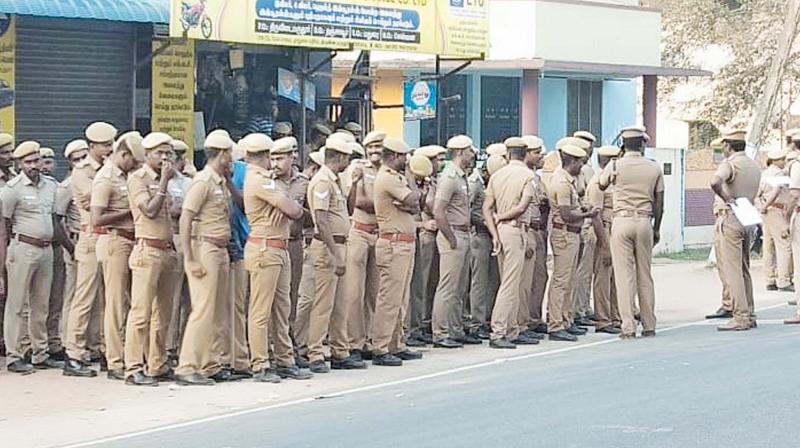Centre takes a hard look at Police
Home ministry approves survey of ‘crime victimisation’, shortfalls in police practices.

Hyderabad: What is the impression you have of policemen, their responses and action? Pose this question to anyone and the response is obvious. Only, this time, the state government wants to know officially what you think of the men in khaki.
Besides, the government wants to gauge the level of non-reporting of crimes, the quality of response and timeliness and, importantly, whether there is crime victimisation, especially of children and women.
Taking a cue from the USA and the UK, which regularly carry out national crime victimisation surveys, its consequences and related issues, the Bureau of Police Research and Development (BPR&D) under the Union home affairs has taken up the task of gauging public perception of the police and all aspects relating to day-to-day policing.
The first-of-its-kind ‘All India Citizens Survey of Police Services’ has been entrusted to the National Council of Applied Economic Research (NCAER), New Delhi. The agency has commenced work from the first week of March.
A BPR&D official told DC that though the project was in the pipeline for a few months, it was only in the last week of February that the MHA gave the go-ahead.
The BPR&D had come out with the name ‘Crime Victimisation Survey’, it was changed to ‘All India Citizens survey of Police Services’ to cover a wide range of subjects involving policing. The project is being supervised by inspector-general Sampat Meena of the BPR&D.
“It will cover 1.2 lakh households spread over 173 districts. The survey, based on the national sample survey framework, will be completed in a record nine months,” an official said, adding all that states and Union Territories were being included in the survey.
The NCAER team will collect information on crimes like rapes, sexual assaults, robberies, assaults, thefts among other offences.
“It is no secret that many cases go unregistered and crime victimisation is prevalent across the country. Victimisation often has psychological, social, financial and emotional consequences,'' one police official said adding that sometimes victimisation can happen to not only individuals, but also families and communities.
An official said such surveys help in building a crime index and give an approximate figure of crimes. “This will lead to improving service delivery in policing to meet the expectations of the public at large. It will be helpful in formulating future policies to fine tune policing,” the officer said, adding that it was a globally accepted way to assess policing.
When contacted, Hyderabad police commissioner Anjani Kumar said that he welcomed the survey. “Any survey which gives a feedback of the police department is a source of guidance for course correction. It enables us identify our strengths and weaknesses which goes a long way in further improving policing,” Mr Kumar said.

